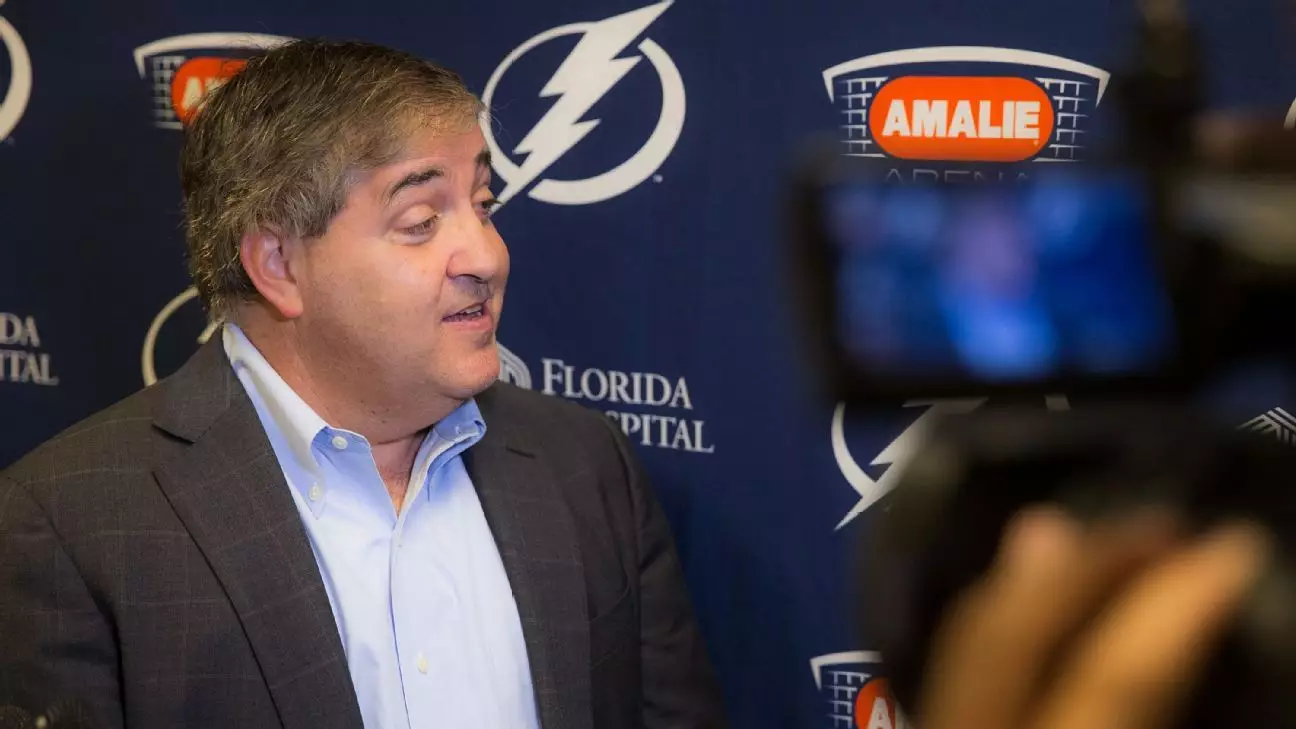Tampa Bay Lightning: A New Era in Ownership
As I sit here reflecting on the past decade, it’s hard not to be impressed by the evolution of the Tampa Bay Lightning. It’s a team that has not only captured the hearts of its fans but has also become a symbol of excellence in the NHL. Recently, a significant change has taken place, marking the start of a new era for this beloved franchise. Owner Jeff Vinik has announced the sale of a majority stake in the team, setting the stage for fresh opportunities and growth. Yet, he will remain at the helm for the next three years, ensuring a smooth transition.
I’ve often marveled at how sports teams can become such integral parts of our lives, and with Vinik’s strategic move, it feels like we are all part of this journey. With new stakeholders like Doug Ostrover and Marc Lipschultz joining forces with Vinik, there’s a palpable excitement in the air about what lies ahead. This transition is more than just an ownership shuffle; it’s about building on a legacy that includes eleven playoff appearances and two Stanley Cup victories. It’s about looking to the future while cherishing the past.
The Lightning’s story is one of perseverance and triumph, much like any great recipe passed down through generations. While changes are on the horizon, Vinik’s vision ensures that this dish—or team—remains flavorful and true to its roots. As we delve into this transformation, let’s explore what these changes mean for the franchise and its passionate fan base.
Key Takeaways
- Jeff Vinik retains control over Tampa Bay Lightning for three years post-sale.
- New stakeholders include Doug Ostrover and Marc Lipschultz.
- The core management team remains intact to ensure continuity.
- Focus on community involvement continues to be a priority.
A Legacy Built on Success
Taking charge of the Lightning back in 2010, Jeff Vinik transformed an underperforming team into one of the NHL’s powerhouses. His leadership saw the team make it to eleven playoffs and secure two Stanley Cup championships. It’s no wonder investors are drawn to be part of such an extraordinary legacy. The track record speaks volumes about what thoughtful leadership can achieve when combined with passion and dedication.
While ownership structures are evolving, what’s remarkable is how day-to-day operations will continue without disruption. CEO Steve Griggs and general manager Julien BriseBois remain at the helm, ensuring stability. In professional sports, where consistency can be elusive, maintaining such continuity is vital for sustained success. It reassures fans that while ownership may change hands, the ethos driving on-ice performance remains intact.

Introducing New Perspectives
The new ownership team brings fresh perspectives and resources to an already successful operation. Ostrover and Lipschultz are not mere investors; they are strategic partners poised to take the franchise to greater heights. They complement Vinik’s approach by providing additional insights and capabilities that can help navigate an ever-evolving sports landscape.
This collaborative effort aims not just to maintain but also enhance what has been achieved over the years. By integrating new oversight while preserving existing management structures, Tampa Bay Lightning positions itself as both a pioneer and guardian of its legacy. The blend of tradition with innovation promises exciting prospects for both players and fans alike.
Community Commitment: A Core Value
One aspect that remains unchanged in this transition is Vinik’s commitment to community involvement. His philosophy of nurturing a ‘community-first’ organization has been instrumental in shaping not just a successful sports team but also a beloved community fixture in Tampa Bay. This focus has fostered strong ties between the franchise and its supporters, creating a unique bond that extends beyond hockey games.
The choice of partners who share this vision underscores Vinik’s dedication to these values. Both Ostrover and Lipschultz have committed themselves to maintaining and expanding these community ties. Their alignment with Vinik’s principles ensures that while business strategies may evolve, the heart of what makes Tampa Bay Lightning special remains untouched.

The Road Ahead: Balancing Tradition and Innovation
With implementation set over the next three years, Tampa Bay Lightning stands ready to embrace new opportunities while honoring its storied history. This carefully orchestrated transition balances innovation with steadfast principles that have propelled them to success within the NHL. By harmonizing new resources with tried-and-tested strategies, they aim to create lasting legacies cherished by fans for generations.
It’s an exciting time for everyone involved—from players lacing up their skates each night to fans cheering from every corner of Tampa Bay arena—as they embark on this new chapter together under shared goals rooted deep within longstanding traditions yet open towards future possibilities ahead!
Final Thoughts
As we stand at this crossroads, it’s clear that Tampa Bay Lightning is poised for an exhilarating journey forward thanks largely due diligence exercised by Jeff Vinik alongside newly inducted partners Doug Ostrover & Marc Lipschultz! Together they form formidable force ensuring continued growth coupled unwavering commitment towards fostering deeper connections within local communities—all whilst preserving core values underpinning past achievements!
This partnership heralds bright future wherein both competitive prowess off-the-field endeavors thrive hand-in-hand setting stage grand adventures awaiting eager anticipation fans old new alike! Here’s looking forward witnessing firsthand unfolding storylines destined shape destiny beloved franchise synonymous excellence throughout league-wide circles today tomorrow beyond!
Tampa Bay Lightning
NHL
Jeff Vinik
team ownership


Leave a Reply